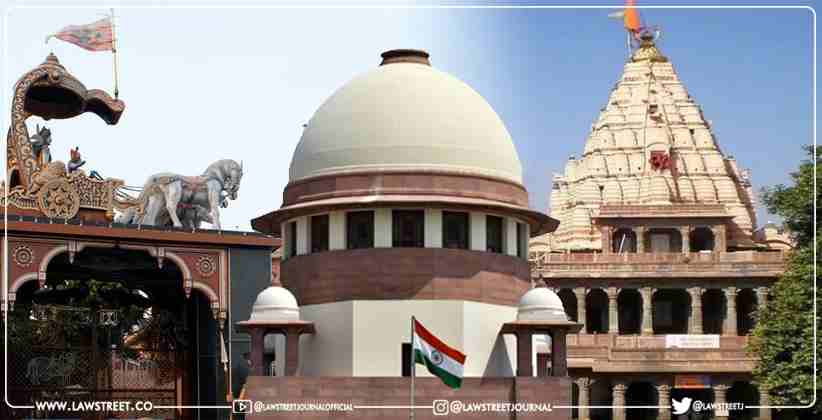The Supreme Court issued notice in an SLP filed by Hindu Dharma Parishad seeking the appointment of an Arangavalar Committee (Trustee Committee) in all Hindu Temples, led by a retired judge, with a social activist, a devotee, a Scheduled Caste person, and a woman as members to oversee the temples.
SLP challenging Madras High Court's ruling dismissing Parishad's writ seeking similar relief was being considered by a bench of Justices Indira Banerjee and JK Maheshwari.
The Parishad was represented by Jaya Sukin and Narender Kumar Verma.
The Hindu Dharma Parishad had contended in front of the High Court that several Hindu temples in Tamil Nadu had been damaged due to poor maintenance. In light of this, the Parishad requested the creation of a Trustee Committee.
The Parishad used the case of the Sree Padmanabhasamy Temple in Kerala, where the Supreme Court ordered the formation of a Temple Committee, to argue that a similar committee should be formed in Hindu temples throughout Tamil Nadu.
The High Court bench of Justices Pushpa Sathyanarayana and P Velmurugan taking into consideration that there was a statutory provision under Tamil Nadu Hindu Religious and Charitable Endowmments Act, 1959 had dismissed the writ.
Learned Advocate General pointed out, that as per Section 47(1) (c) of the Tamil Nadu Hindu Religious and Charitable Endowments Act, 1959, (Tamil Nadu Act 22 to 1959), every Board of Trustees constituted under clause (a) or clause (b) shall consist of not less than three and not more than five persons, of whom one shall be a member of the Scheduled Castes or Scheduled Tribes and another one shall be a woman. As already there is a statutory provision, as has been demanded by the petitioner, there is nothing for adjudication in this Writ Petition and for issuing suitable directions. Hence, this Writ Petition stands dismissed. No costs," High Court had observed.









